Faculty/Instructor Session
2:30: Jane Gilmor, "Within and Without: A Socially Engaged Art Practice Investigates the Invisible Worker, Poverty and Community Building"
Abstract:
Through dialog-based, collaborative art making can the engaged public artist help give a voice to the disenfranchised and push the boundaries defining their marginalization?
This presentation focuses on the changing nature of one artist’s sociallly engaged practice over the past three decades, highlighting her three most recent institutionally commissioned public works dealing with the current crises in rising poverty rates, homelessness, and the invisibility of low-wage workers. Included in the discussion is an analysis of processes of involvement and collaboration as well as a presentation of qualitative outcomes including the potential for future impact within specific communities. Details of curricular incorporations and models for deepening the citizenship of the artist, the commissioning institutions, and all involved participants are also considered. Central to the artist’s conclusions are potential frameworks for using engaged art practice to question and initiate change in the socio-economic hierarchies that perpetuate disenfranchisement. An essential outcome must be to empower all participants includingstudents, staff and volunteers to build new communities within existing communities in order to make their voices heard.
Biography:
Jane Gilmor, an intermedia/social practice artist, has exhibited nationally and internationally for four decades. A.I.R. Gallery in New York published Jane Gilmor: I’ll Be Back For The Cat by art historian and critic Joy Sperling in 2013. In 2017 she was the George Miller Endowed Scholar at The Center for Advanced Studies at The University of Illinois, Champaign-Ubana where she developed a yearlong socially engaged project working with homelessness. One of five artists selected nationally, Gilmor received a 2011 Tanne Foundation Award for her career achievements in visual arts. In 2003 she was a Fulbright Senior Scholar at Evora University in Portugal where she returns annually to lecture. This year she will begin a major project in Lisbon, Portugal working with sheltered domestic violence victims.
Gilmor’s community-based, socially engaged work began in the 1980s working with residents of the National Coalition for the Homeless Shelter in Washington D.C. Her work with the disenfranchised continued in the Twin Cities, New York, London, Lisbon, Portugal, Los Angeles, Iowa and Illinois and has expanded to include several multiple-year projects with low-income hospitalized children, cancer patients, as well as two major projects, Work-Shift and (UN)Seen Work, collaborating with minimum wage Midwestern workers in a vanishing industrial age.
Recent projects also include The Architecture of Migration: I’ll be back for the cat, Long Island University in Brooklyn; Blind at A.I.R. Gallery in New York, Cooperative Consciousness at the 2016 Biennale, Kochi, India, and Bed Shoe Home at The University of Illinois Champaign-Urbana, in collaboration with the university YMCA, area homeless and domestic violence shelters as well as university students and community experts.
Gilmor is recognized as a contributing member of the Women’s Art Movement of the 1970s and is included in several major books including Lucy Lippard’s OVERLAY: Contemporary Art and the Art of Prehistory; and Broude and Gerrard’s The Power of Feminist Art: The American Movement of the 1970’s History and Impact, Abrams, 1993/2011; and Pioneer Feminists: Women Who Changed America, 1963-1976, B.Love, University of Illinois Press, 2006. Gilmor has received NEA Visual Artist's Fellowships, a McKnight Interdisciplinary Fellowship, and residency fellowships in Ireland, Italy, London, and at The McDowell Colony. Her work has been reviewed in The New York Times, The New Art Examiner, The Chicago Tribune, the NY Arts magazine and Cabinet among others. Gilmor has been a keynote speaker and panel moderator for numerous conferences on the history of the Women’s Art Movement of the 1970s and on socially engaged public art.
Gilmor attended The School of the Art Institute of Chicago and has an MA and MFA in Painting and Intermedia from The University of Iowa. She is an Emeritus Professor of Art at Mount Mercy University in Cedar Rapids, Iowa where she taught from 1974-2012. She also taught graduate courses at The University of Iowa School of Art and Evora University in Portugal. She is now a full time artist with a studio in Cedar Rapids, Iowa, and affiliated with A.I.R Gallery in New York since 1985 and Olson Larsen Galleries in Des Moines since 1995.
